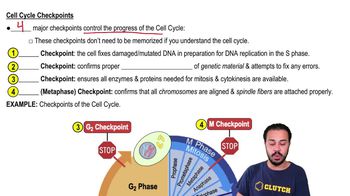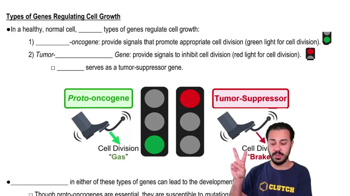Textbook Question
Apoptosis involves all but which of the following?a. fragmentation of the DNAb. cell-signaling pathwaysc. lysis of the celld. digestion of cellular contents by scavenger cells
1818
views
 Verified step by step guidance
Verified step by step guidance Verified video answer for a similar problem:
Verified video answer for a similar problem:



 3:31m
3:31mMaster Cell Cycle Regulation with a bite sized video explanation from Bruce Bryan
Start learning